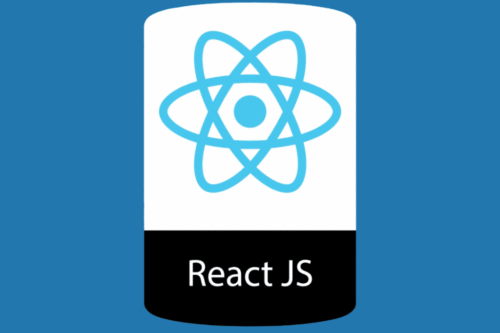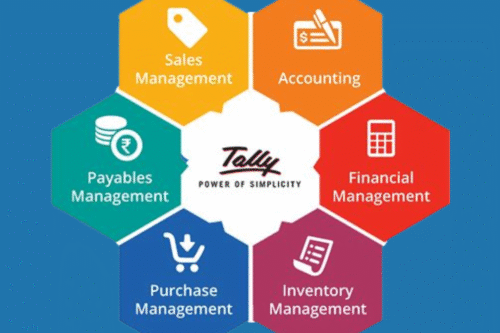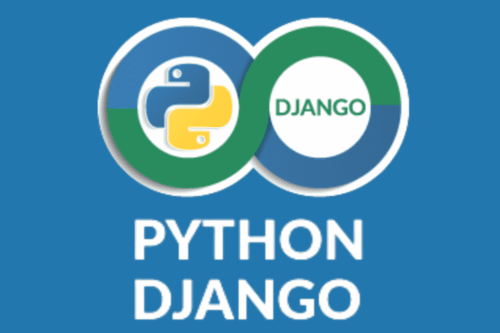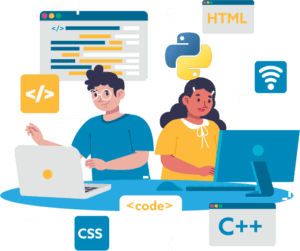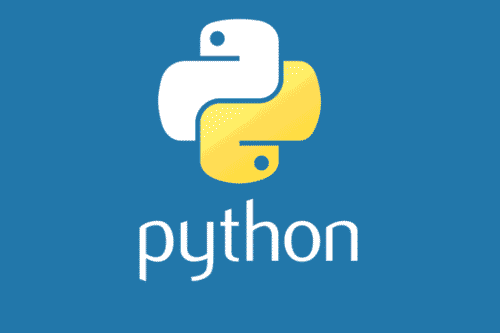Have any questions?
- Guntur +91 7997927111
- Vijayawada+91 9985858639
Best Android Course Training Institute In Vijayawada
✓
✓
✓
Android App Development Course in Vijayawada
Nipuna Technologies offers an Android App Development Course in Vijayawada. This course is designed to train our students in basic to advanced concepts of Android App development. Android is an open-source Linux-based Kernel system that is used primarily on Cell Phones, Tablets, and Phones to build and run programs. Android is a software program and operating system based on Linux designed for mobile devices, such as smartphones and tablets.
It was created in collaboration with Google and later OHA (Open Handset Alliance). The Java language is used primarily for writing Android code, though other languages can also able to be employed. The Android project aims to develop an actual-world product that enhances the user experience of mobile phones for end-users.
Nipuna Technologies, the best Android Course in Vijayawada, aims to give you in-depth knowledge about the components and features of Android development. Our expert-level trainers in Android App development have 8+ years of experience, and they designed an Android Certification course curriculum to learn Android app development completely to face challenges in real-time industry-based problems. Upon completion of the course, you will receive an Android training course completion certificate from Nipuna Technologies. This Android app development certification will help you crack jobs in the Top MNCs.
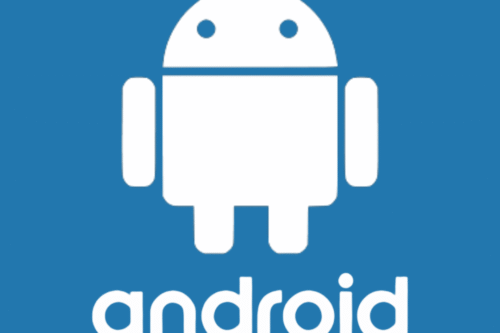
Andriod App Development Course Curriculum
- What is Android?
- Key Benefits of Android
- Facts About Android Course
- The Evolution of Android Application Development
- The Need to Establish Android
- Market Trends and Forecasts for Android Apps
- Objectives of Android
- Installation of Android SDK as well as Android Studio
- Android Architecture
- The Key Highlights from Android 6.0 Marshmallow
- Creating Aan ndroid Project
- Easy App Demo to collect input and use it to say “hello and name”
- Life Cycles of Activity
- Intents, passing data, launching activities
- Supporting different devices
- Add Action Bar
- Data saving
- Android Layouts
- Menus
- Controls for input
- Settings
- Dialogs
- Toasts
- Drag and Drop
- List Views
- Loader
- Methods for managing a SQLite database
- Bound services
- The creation of bound services
- Controlling the lifecycle of bound services
- Remote communication using remote services
- Content provider fundamentals
- Creating content providers
- Calendar provider
- Contact the provider
- Fragments
- Dynamic UI using Fragments and Dynamic UI
- Loaders
- Back stacks and tasks
- Locating a current location
- Utilizing maps that include location
- Strategies for location
- Overview of Sensors
- Motion sensors
- Sensors for determining the position.
- Sensors for the environment
- Media playback
- Media router
- Media route provider
- Camera
- Application for uploading Norms
- Checklist
- Android Wireless APIs
- Network Service Discovery
- Registration for the Service
- Discovering Services on Network
- Resolving a Service in the Network
- Refusing to register a Service
- P2P Connections via Wi-Fi
- Wi-Fi P2P Connection Installation
- Wi-Fi P2P to support Service Discovery
- Making connections to the Network
- Sending a request and receiving an Answer
- URL Connection
- Controlling Usage of Networks
- XML Data
- Parsing XML
- Optimizing Downloads
- Optimizing Downloads–Prefetching Data
- Minimizing Regular Server Updates
- Syncing with the cloud or Server
- Syncing with Cloud
- Auto-Backup in Android 6.0
- Supporting older versions of Android
- Sync Adapters
- Sync Adapters — Components
- Making Stub Authenticators
- The creation of Stub Content Provider
- Designing a Sync Adapter
- Creating Sync Adapter Class
- Create Bound Services
- Create Sync Adapter XML Metadata File
- Declare Sync Adapter in the Manifest
- Add the Account
- Selling In-App Products
- Preparing In-App Billing
- Creating In-App Products
- The In-App Products Query
- Purchasing In-App Product
- Consuming the in-app purchased product
- Testing In-App Billing Application
- The need for multiple APKs
- Maintaining Multiple APKs
- UI Flows that are adaptive to UI
- Handling Screen Configuration
- App Bar
- App Bar–Implementation
- Add Actions
- Action Bar–Up Navigation
- Action Views
- Action Providers
- Snack bar
- Security and Privacy – Overview
- The storage of application data in files
- Sharing and storing application data
- Utilizing and Creating Permissions
- Security Tips for Network Security
- Utilizing SSL and HTTPS–Overview
- Utilizing SSL and HTTPS
- Security through HTTPS and SSL
- Android DSP Dynamic
- Test Project in Android Studio
- Android Application Testing–Overview
- Instrumentation–Overview
- Test Case Classes
- Assertion Classes and Mock Objects
- Testing and Finding Results
- Activity Testing
- Espresso for UI Testing
- Detecting Common Gestures
- Detect and handle touchscreen Gestures
- Tracking Moving
- Handling Multi-Touch Gestures
- Moving the hand with a scroll or drag
- Scaling
- Handling Events and Expanding the Accessible Area
- Controlling Keyboard Input
- Controlling the Physical Keyboard Navigation
- Android Wear Introduction
- Android Wear User Interface Principles
- Android Wear Application Design Principles
- Types of Android Wear Apps
- UX Designs for Android Wear and Cards
- User Interface Designs for Android Wear Pages
- User Interface Designs for Android Wear Action Buttons
- UI Designs designed for Android Wear – Action Countdown and confirmation
- User Interface Patterns for Android Wear – Action on Cards
- User Interface Design Patterns to Android Wear 2D Picker
- Building Android Wear Application
- Packaging Wearable Apps
- Wearable SDK limitations
1. Customized User Interface for Wearables
- Defining Layouts
- Designing Layouts Using The Watch View Stub
- Accessing Layout Views from the Watch View Stub element
- Using Shape-aware layout
- Adding Cards
- Making Lists
- Making a 2D Picker
- Confirmation of Showing
- Timer for Confirming Showing
- Animation showing Confirmation
- Exiting full-screen applications
2. Adding wearable features
- The addition of wearable notifications to Notifications
- Making Notifications about Wearables
- The addition of buttons to notifications
- Making Notifications Bigger by Adding a Big View
- Adding Wearable Features
- Receiving Voice Input from Notifications
- Hearing Voice input as a String
- The Notification can be expanded by adding pages
- Notifications for Groupings
3. Data Synching
- Accessing Wearable Data Layer
- Syncing Data Items
- Transferring Assets
- Sending and receiving messages
- Handling Data Layer Events
4. Creating Watch Faces
- Designing Watch Faces
- Watch Face Design Factors to Consider
- Making a Watch Face Service
- Drawing Watch Faces
- Displaying information in faces
- Creating Interactive Watch Faces
- Offering Configuration Options
- Handling Miscellaneous Issues
- Optimizing Performance
5. Location-aware Android Wear
- The location on the Wear Device
- The Android Wear GPS can be used to locate you
- Detecting On-Board GPS
- Handling GPS Location Disconnection Events
- Synchronizing Location Data using Handheld
Android App Development Training Key Features
Practice Labs For Real-Time Learning
Live Project Training
Classroom Training
24/7 Support
Job & Interview Assistance
Internship After Course
Development Tools
-
Android Studio – Official IDE for Android app development
-
Eclipse IDE – Alternative IDE for Java-based Android development
-
Visual Studio Code – Lightweight editor for cross-platform development
-
Gradle – Build automation and dependency management tool
Programming Languages
-
Java – Core language for Android app development
-
Kotlin – Modern, official language supported by Google
-
XML – For designing layouts and UI components
Emulators & Debugging Tools
-
Android Emulator (AVD) – Virtual device for app testing
-
ADB (Android Debug Bridge) – Command-line tool for debugging
-
Logcat – Real-time app logging and error tracking
Version Control & Collaboration
-
Git & GitHub – Source code management and collaborative development
Database & Storage
-
SQLite – Lightweight local database for apps
-
Room Database – Modern ORM library for Android
-
Firebase Realtime Database – Cloud-hosted NoSQL database
UI/UX Design Tools
-
Figma / Adobe XD – UI/UX prototyping and design tools
-
Material Design Components – Google’s design system for Android apps
APIs & Cloud Integration
-
Google Firebase – Authentication, analytics, push notifications, and cloud backend
-
Google Maps API – Location-based app development
-
RESTful APIs & JSON Parsing – Connecting apps to web services
Testing & Deployment
-
JUnit – Unit testing framework
-
Espresso – UI testing framework for Android apps
-
Google Play Console – App publishing and performance tracking
Additional Highlights
-
Real-time Android projects from scratch
-
App lifecycle management, security, and permissions
-
Guidance for Google Play Store publishing
-
Complete support for professional growth in Android app development
Android Course Tools & Platforms
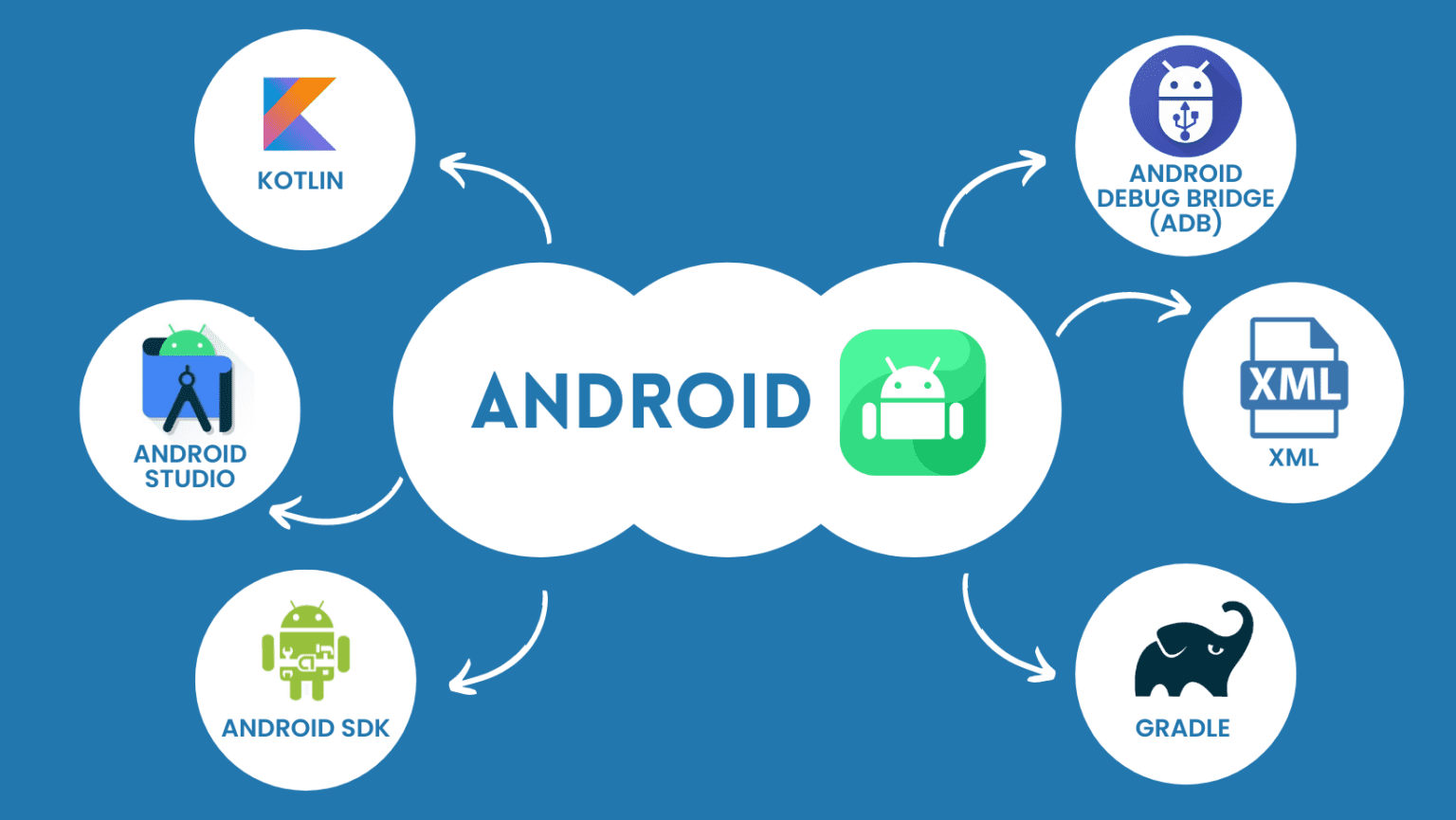
Job Opportunities After Completing Our Android App Developement Training in Vijayawada
Nipuna Technologies provides students a comprehensive Android training so that they can achieve their career goals confidently. We consider students as our responsibility & it does not end after the completion of Android courses and certification. We provide Android training courses with placement solutions to the students & our placement team schedules drives and also conducts mock interviews during the training. Already, we have kept a moderate Android training fee to support students coming from all sections of society.
Google is now planning to further develop applications, including 3D scanning, Google Glass, and Li-Fi. Augmented Reality, Multi-Screen Capability, Indoor Positioning, Infrared Remote, Project ARA, Dual Recordings, Advanced Google Assistant, and Adaptive icons, using the newest innovations of Google. If you’re looking to begin your journey as an Android developer, then now is the right time to pursue an associate Android developer certification because Android technology is set to create numerous job vacancies. On average, it is believed that there are 1.6 billion Android devices around the world and that over 90% of all users are Android Mobile phone users. Furthermore, it is predicted that by 2022, it will be the overall figure amount of 1.41 billion devices, with an annual increase of 2.4 percent, and a total number of 13 billion Android users.
Android developers
Mobile Developer Android
App Development Engineer
Mobile Lead Software Engineer
Mobile Embedded Software Engineer
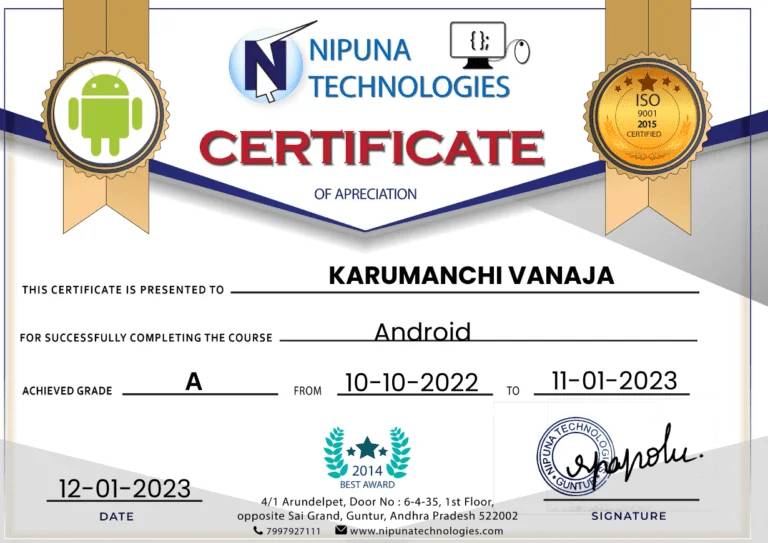
Android App Development Training Certificate in Vijaywada
Build your career as a professional Android app developer with the Android App Development Certification Course by Nipuna Technologies, . This certification program is designed to help students master the skills needed to design, develop, and publish powerful Android applications using Java, Kotlin, and Android Studio.
Throughout the training, learners will gain hands-on experience in UI/UX design, API integration, Firebase, and Play Store deployment through real-time projects guided by expert trainers.
After completing the course and final evaluation, students receive an industry-recognized Certificate from Nipuna Technologies, validating their practical knowledge and technical expertise in mobile app development.
Student Reviews
Hear what our students have to say about their learning experience with Nipuna Technologies.

Praveen Kumar

Nagasai Krishna

Supriya

Sunil Kumar

Anudeep Ande

Majeti Priya








